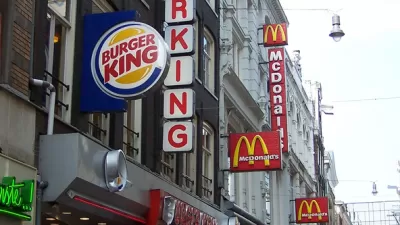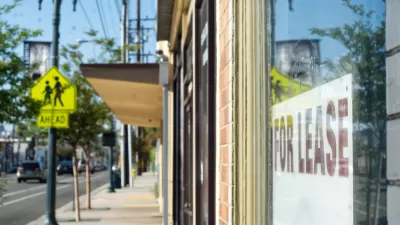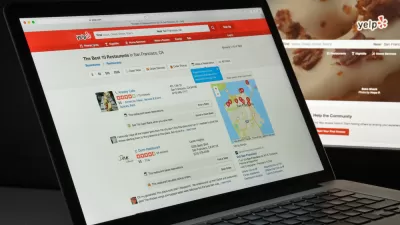Yelp released revealing new data about city restaurants, showing which cities have a culture of independent eateries and which are dominated by chains.

According to data from Yelp, people don't like restaurant chains very much. "Nationally, mom ’n’ pop eateries were always preferred by a small margin, but since 2012, the gap in Yelp’s 142 million ratings between them and chains has nearly doubled. For fast-food restaurants, the average rating gap stands at almost a full star now," Henry Garbar reports in Slate.
So why do these chains dominate so many cities? "Poorly rated indies might also be more likely to go out of business than poorly rated chains," Garbar suggests. There's also the issue of how people get around, and where they're likely to stop. "The bottom of the list, meanwhile—the place where the chains dominate—is a who’s-who of the Sun Belt."
In these cities, often homes to long drives, it may be hard to pull folks off highways to try independent offerings. Older, more walking-friendly cities might be more conducive to experimenting with local fare.
FULL STORY: Why Chains Dominate the Sun Belt but Not the Pizza Belt

Planetizen Federal Action Tracker
A weekly monitor of how Trump’s orders and actions are impacting planners and planning in America.

Chicago’s Ghost Rails
Just beneath the surface of the modern city lie the remnants of its expansive early 20th-century streetcar system.

San Antonio and Austin are Fusing Into one Massive Megaregion
The region spanning the two central Texas cities is growing fast, posing challenges for local infrastructure and water supplies.

Since Zion's Shuttles Went Electric “The Smog is Gone”
Visitors to Zion National Park can enjoy the canyon via the nation’s first fully electric park shuttle system.

Trump Distributing DOT Safety Funds at 1/10 Rate of Biden
Funds for Safe Streets and other transportation safety and equity programs are being held up by administrative reviews and conflicts with the Trump administration’s priorities.

German Cities Subsidize Taxis for Women Amid Wave of Violence
Free or low-cost taxi rides can help women navigate cities more safely, but critics say the programs don't address the root causes of violence against women.
Urban Design for Planners 1: Software Tools
This six-course series explores essential urban design concepts using open source software and equips planners with the tools they need to participate fully in the urban design process.
Planning for Universal Design
Learn the tools for implementing Universal Design in planning regulations.
planning NEXT
Appalachian Highlands Housing Partners
Mpact (founded as Rail~Volution)
City of Camden Redevelopment Agency
City of Astoria
City of Portland
City of Laramie





























